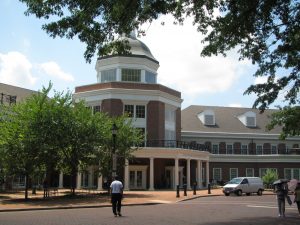Who knew it would be so difficult to find on-campus parking at Ohio University in Athens . . . in the middle of the summer? My tour guide stated that this summer was unusually busy on campus and likely due to students taking courses in preparation for the university changeover from quarters to semesters. The 2011-12 academic year will be the last year that Ohio University is on the quarter system.


In addition to enrolled students taking courses this summer, there are 3 other cohorts on campus:
- International students – I saw a lot of international students. I was surprised to see so many international students since there is a relatively small international community during the academic year (less than 8%). In fact, only about 17% of their student body are non-Ohio residents.
- Rising Freshmen – OU encourages its freshman students in the Honors College to begin in the summer session. Those students participate in smaller learning communities. Administrators noted that the summer session is a program to help students transition to college and hopefully improve retention. The most recent graduation rate for OU is 69.7%.
- Middle and high school students – There are a host of summer programs on OU’s campus for both day and residential students. Nike hosts several sports camps there each year. Additionally, OU hosts its own summer program for high school students. During my visit, I met with the directors of the summer programs and they have been fine-tuning this program since its inception. I will be meeting with them again during the academic year to learn more about upcoming changes.
As rising juniors and seniors are traveling this summer, I encourage them to take advantage of opportunities to visit area campuses. Even if you visit a campus that may not be of interest, you can still learn a lot about available options and make comparisons. When I use the term “area” I am referring to those campuses that are near your home or proximal to where you’re already traveling. I am not suggesting that families make special distant trips just for the sake of visiting – that can be very costly and time-consuming. Campus visits should be done more thoughtfully and strategically than that.
Please listen to our radio show on-campus visits and get more information about how you can make the most of your campus visits.

